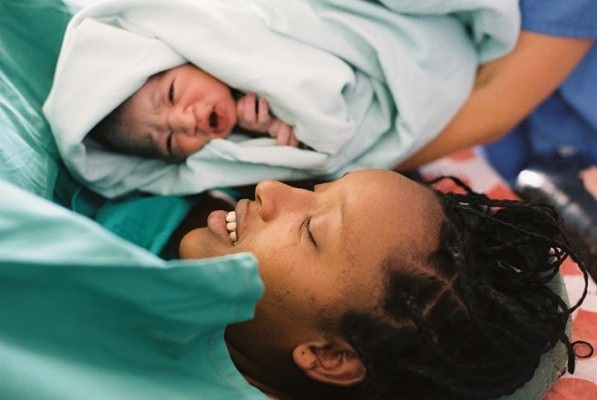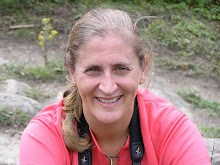February 20th
I travelled back to Gimbi on Wednesday, thankfully having a safe and uneventful trip (only two accidents observed on the roadside this time!). The second half of my trip is going to be different to the first half as I now have a housemate (Marie who is the midwife from Denmark) as well as sharing the on-call with Steve (American ObGy who is here from Australia where he now lives). It has made me realise that I had settled into a slightly solitary existence with a lot of time spent writing journal, blog and emails as well as reading. Currently Camilla & Sycret (journalists) are also staying in the Maternity Worldwide bungalows (sharing with Steve) so meals in particular have become a sociable affair compared to my previous meals for one. Another change is that there are now people who are keen to accompany me into town for a beer after work so this aspect of my detox diet is going to be much less severe in this half of the trip.
So back to business- I was on call yesterday and had my busiest and also saddest night on duty since I arrived. I think that I finally realised yesterday that although the obstetrics in many ways appears the same as in the UK, in fact we are playing by a completely different set of rules (and unfortunately sometimes it feels like they have forgotten to give me a copy of the new rule book).
I know that it was inevitable that it would happen eventually but yesterday we had our first maternal death since I have been here- the inevitability has done nothing to make the sense of helplessness any less. When I arrive here one of the other "fairnge" said to me to remember not to take it personally as "people die very easily here", perhaps true and good advice but when it happens still not easy to heed.
The mother was 18 years old and in her first pregnancy. The case is a double tragedy as although the baby is currently alive, he too will die in the next few days as he has suffered severe brain damage due to lack of oxygen during his birth. The mother was from one of the tribal villages some distance from the hospital and she laboured at home for many hours before going to a local clinic for help. There are a number of peripheral clinics that are administered and staffed by the hospital but there are no doctors (or midwives) in these remote locations and the nurses who work there have to do the best that they can to help given their limited experience and resources. At the clinic they had tried unsuccessfully to help the baby deliver using suction equipment (something used more commonly than forceps as it is much safer for the mother) and so transferred her to Gimbi for further management. The transfer took a few more hours, amazingly the baby was still alive when she arrived and so she was assessed and delivered by a caesarean section (all this occurred whilst I was in Addis). The caesarean all seemed uncomplicated (although this sort of caesarean is always difficult as the baby's head is very deep and impacted in the pelvis) and the baby resuscitated easily. The next day it was clear from the baby's posture/behaviour that he had severe brain damage with the result that he was unable to swallow at all. This was "discussed" with the parents and the plan made was to allow the natural course of events to occur and not to give the baby tube feeding (directly into his stomach) which overall would just prolong the inevitable. All this was all tragic enough when the mother, who had seemed well on that first morning became severely unwell and deteriorated at an alarming rate- all her clinical signs suggested that she had a severe infection. We managed her overnight with the strongest antibiotics that we have here but by the next day she was critically ill and Tekle (local obstetrician) made the decision that we must operate on her again to see if we could find the cause of her infection. The expectation had been that we would find some problem related to her bowel but at operation we found that her uterus was the cause of the infection, as for reasons impossible to explain it had become ischaemic (this means the blood supply was cut off to it and as a result the tissues die). A rapid hysterectomy was performed and we continued with the antibiotics, fluids, blood transfusion (donated by "faringes" as no family were available due to the distance), oxygen and the basic monitoring that we can do here. In the West she would have been immediately admitted to a high-level intensive care unit, kept ventilated, received high tech monitoring and multiple drugs to stabilise her heart, kidney and lung function not to mention specialist transfusions to keep her blood count and clotting as normal as possible.
She was young and her body fought hard to try to recover although she never regained consciousness. Sadly by 11pm she was showing signs that her lungs were failing and also that her blood was no longer clotting properly, forcing me to accept that there was no more that I could do and that it was only a matter of time until she died. She was restless and possibly in pain so I gave her a very small dose of painkiller, avoiding a larger more effective dose as I was obviously not completely accepting what was going to happen didn't want to depress her breathing any further.
Bizarrely although she died in the early hours of the morning, this is so much accepted as a "normal" event here that the midwives didn't call me to see her again or even to certify her death (a legal requirement in the UK). In the UK all deaths of women who are pregnant or have been pregnant in the last 12-months have to be reported (in addition to the normal death registration) there is no such system in Ethiopia -death recording happens within the hospital but no other notification is required. Sorry for the sad detail but this is a partially cathartic exercise for me!
On the face of it not a very uplifting blog but I have to remember the bigger picture: although I keep thinking that we should have been able to do more for this particular woman, I push these feelings away by reminding myself that before the arrival of Maternity Worldwide in Gimbi the maternal mortality rate was 6% (now about 1%)- this would have meant 12 deaths in the time period I have been here so that however inadequate it may feel, something we do is saving lives.


No comments:
Post a Comment